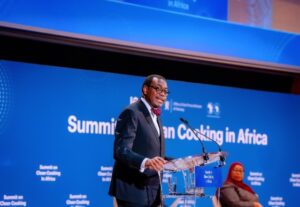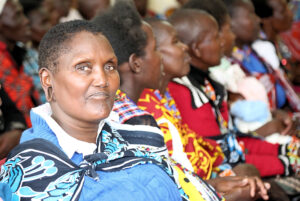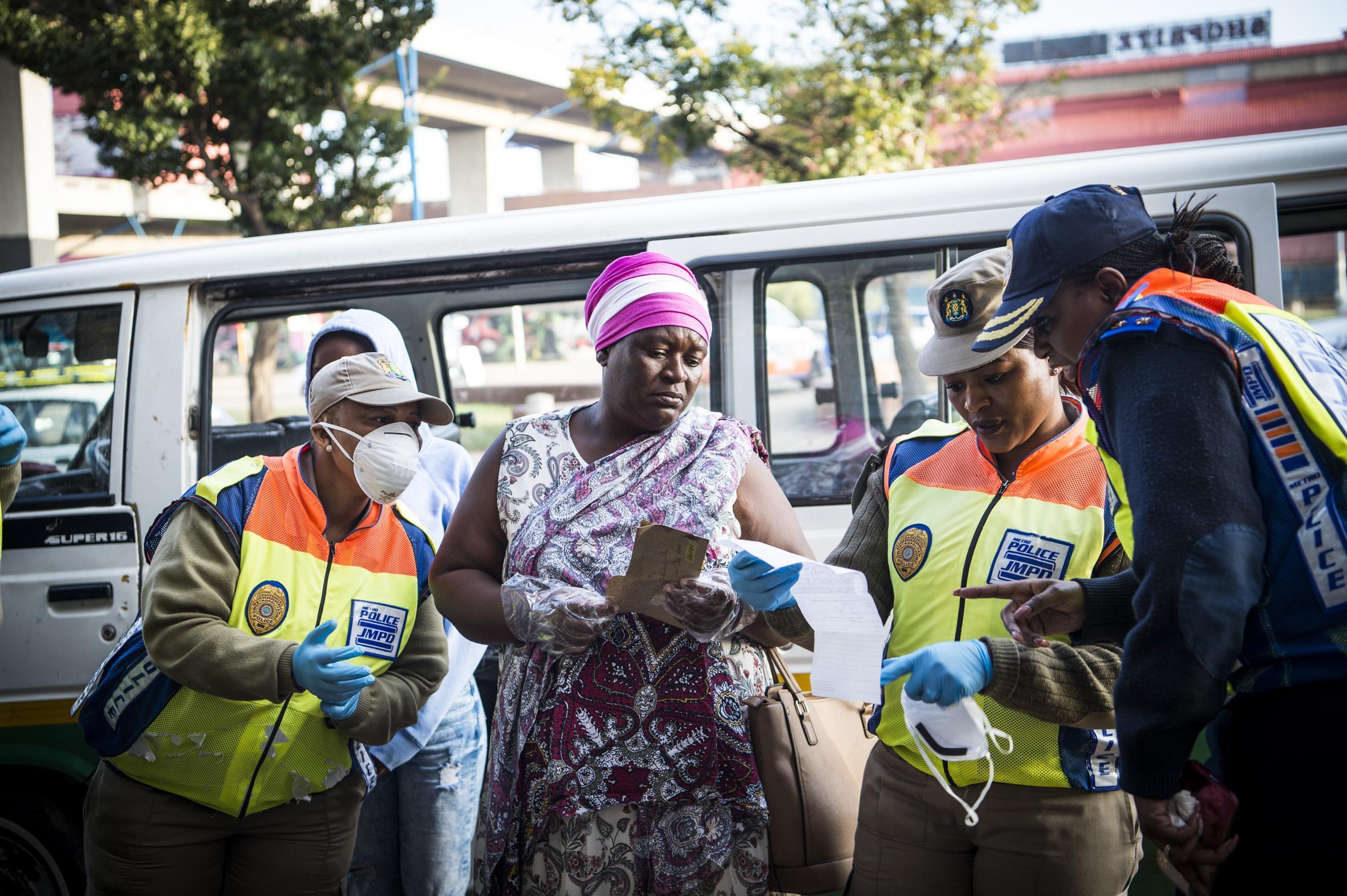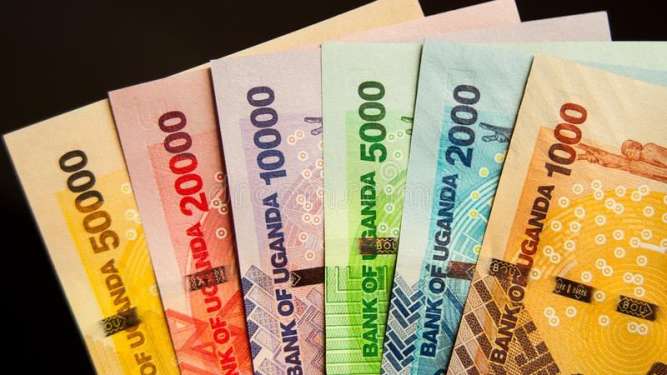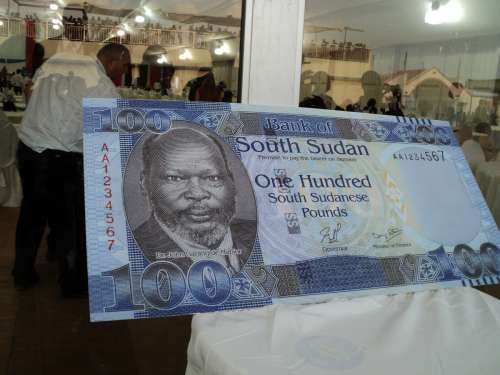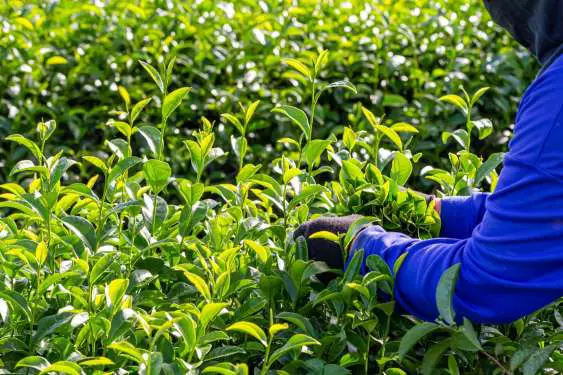- Family planning drive in Kenya gets 450,000 self-injectable contraceptive doses from UK
- AfDB commits $2 billion to revolutionise clean cooking in Africa, save forests
- The harsh realities of family laws for African women revealed
- Kenyan home buyers shift preferences, seek affordable housing despite market downturn
- How startup Yeeo is shaping the future of business contacts with eco-friendly innovation
- Stakeholders in Nairobi seek to unlock Kenya’s green jobs potential
- Alarming surge in online child exploitation sweeps Africa
- Beijing tightens China-Africa grip as trade rivals US, Russia seek bigger slice
Browsing: premium
Imagine an Africa where farmers can detect parasites in their livestock by a simple scan of a handheld machine. Where road networks allow swift transportation of produce to markets. Where farmers can access finance and be adequately insured against natural disasters by a simple click of a button.
The reality across the continent is one of underdeveloped, underserved rural areas. Women dressed in traditional garb carry buckets of water over long distances. There is no electricity or running water and very little internet access. According to World Bank statistics 56% of Africans live in rural communities. Recent trends have shown a high rural to urban migration rate. This migration has resulted in high urban densities, rising crime rates and overcrowding in the urban areas. Neither of these situations is amenable. Which brings into light the need to empower rural communities to support economic resilience in Africa.
Also Read: COVID-19
…The African continent takes pride in its rich natural resources. The continent boasts of a wide range of minerals, oil, gas, and wildlife among many other commodities. Most African economies are heavily dependent on these resources. Revenue for most is mainly commodity-driven for example, Botswana’s diamonds make up 90% of the country’s total exports. In Nigeria, oil accounts for more than 80% of exports and Zambia is reliant on its copper mines for 70% of its exports.
In the majority of cases, African countries are net exporters of the raw commodity making them more vulnerable to the price shocks and changes in demand. Facilitating trade within Africa may be the roadmap to unlocking Africa’s economic potential.
Also Read: All eyes on EAC border points as massive delays bite | KenTrade
Two of Africa’s largest trading partners, the US and China, have been dueling for world economic dominance. There …
The 33rd Ordinary Session of the Assembly of Heads of State and Government of the African Union (AU) was held from 9th to 10th February 2020 in Addis Ababa, Ethiopia. The theme was, “Silencing the Guns: Creating Conducive Conditions for Africa’s Development”.
In his opening address, the newly elected Chairperson of the African Union H.E. President Cyril Ramaphosa of the Republic of South Africa outlined key priority areas that will drive Africa’s growth within the framework of Agenda 2063. The Chairperson’s address focused on: deepening unity in Africa, advancing inclusive economic growth and sustainable development, ensuring political and economic unity, good governance and peace, supporting integration, industrialization, economic development, trade and investment, development of an appropriate strategy for the fourth industrial revolution, economic and financial inclusion for women and mainstreaming the interests of women, conflict resolution and championing the position of Africa as a strong and influential …
It is with no doubt that the coronavirus pandemic (COVID-19) has caused serious troubles for economies around the world, namely in the developed world. However, addressing the matter in much of the developing world is quite different, as many governments have seen national economic outputs derailed by a few years. The situation is much worse, as its knocked off many African countries from their respective economic trajectories.
The health pandemic brought it’s friends along, as we’ve now witnessed an economic pandemic of sorts. Food crisis, housing crisis and political crisis have been all party to Covid-19, a theme that was explicit in the 2020 Bill and Melinda Gates Goal Keepers report published just last month (September 2020).
The report raised interesting issues to examine attentively. It argued that in just 25 weeks almost 25 years of progress was regressed, particularly on the Sustainable Development Goals and in particular …
East African countries have had a tough balancing act in 2020 as the Covid-19 situation oscillated from good to bad over and over again. This is reminiscent of the global situation where central banks have been forced to use high-level tuning and juggling to ensure their currencies don’t fall beyond repair. Even the US dollar, the main international currency has suffered repeatedly with Chinese Yuan and Euro pushing it against the wall.
In East Africa, a tough monetary policy by the central banks has seen currencies remain stable though with significant losses. Kenya for example, has seen its shilling lose ground to the dollar by almost seven points. The Rwandan franc and Tanzanian shilling have survived the wave while the South Sudan pound has been hit hard.
The East African region is primarily a traditional shilling zone that was introduced by the British rulers and used in Kenya, Uganda, Tanzania, …
Kenya pension schemes are gearing up to undertake major infrastructural work, taking advantage of a growing need for capital both by government and the private sector.
While most of the capital generated in Kenya for infrastructural development is often obtained in the form of concession loans, pension schemes have been utilized mainly in real estate as well as government bonds.
However, under a new outfit called Kenya Pension Fund Investment Consortium (KEPFIC) plans are underway to form a partnership with pension funds in the United States, South Africa and the United Kingdom to facilitate KSh25bn (US$229.6 million) in investments in infrastructure, real estate and affordable housing over the next four years.
The US through Kenya’s Ambassador Kyle McCarter, together with representatives from the World Bank and American advisory firm MiDA Advisors, have launched the outfit. KEPFIC will enable pension schemes to jointly make sustainable long-term infrastructure and alternative asset investments …
The guns on the plains of South Sudan seem to have fallen silent. But there is a more severe battle going on. The country is experiencing on of its worst financial crisis since its independence with prices of basic goods skyrocketing to unprecedented levels.
Some news agencies are reporting that communities are opting to live in UN refugee camps, where they are assured of a meal and shelter rather than live in their own homes. The central bank is unable to intervene and reduce the country’s skyrocketing inflation rate, which now stands at 35%.
The situation has been attributed to multiple issues. The country has hardly been peaceful since it gained independence from Sudan. There has been heightened political animosity which has often led to full-blown military conflict.
There has been little or no investment to a point where the UN has considered paving some of the roads in the …
The tourism industry globally is one of the most sensitive sectors easily affected by political, economic, and social issues. 2020 has been one of the worst times for tourism in almost all destinations with countries losing billions of dollars as the world shut down over the COVID-19 pandemic. The United Nations World Tourism Organization estimates that global international tourist arrivals have decreased by 58 percent to 78 percent in 2020, leading to a potential loss of US$0.9 to 1.2 trillion in international tourism receipts. In many of the world’s cities, planned travel went down by 80 percent to 90 percent.
More than 2.5 million Kenyans working in the tourism sector lost their jobs in the first half of 2020 due to COVID-19 related disruptions, according to the government. This has devastated communities that depend on this important sector.
To address the challenge, governments, industry players and tech-startups …
The dawn of 5G in Africa is here with us and what was once seen as a dream has turned to reality, albeit with revised expectations. South Africa became the first country in Africa to offer commercial 5G services with Rain, Vodacom and MTN piloting it in various cities and using different methods to reach their clients.
Rain launched the country’s first commercial 5G network in partnership with China’s Huawei Technologies in 2019 in Johannesburg and Tshwane, offering subscribers unlimited data at speeds of up to 700Mbps for R1,000 per month. Since launch Rain has doubled its 5G coverage, achieving it by adding more sites and providing a new 5G router to users.
Vodacom’s launch to the mobile market covered three cities: Johannesburg, Pretoria and Cape Town. It was able to fast track the launch by using a temporary spectrum assigned by the South African telecommunications regulator …
Tanzania has announced plans to roll out its own tea auction, a move that would tap major players from the country as well as from neighboring Rwanda, Burundi and Uganda, shrinking the turf held by the Mombasa auction.
The country’s push for an auction is driven by the need to lower transport costs to Mombasa and boost farmers’ earnings.
The reach is expected to be even bigger. The new tea auction will be conducted by the Tanzania Mercantile Exchange (TMX) via an online system, whereby buyers across the world will be able to get the opportunity to participate. First incorporated in 2014, the exchange provides futures clearing and settlement services. It also maintains a central securities depository. The TMX primarily lists agricultural futures, with sesame seed futures accounting for a large portion of trades.
The Tanzania Board of Tea (TBT) announced that the exchange will be based in Dar …

